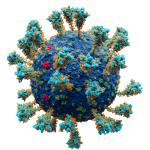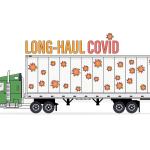It is not uncommon for legislators to introduce bills that they know won’t pass, but that have symbolic value of some sort, like renaming a bridge or freeway to honor a constituent. Every so often, however, they propose something that is so c
COVID
Join hosts Cameron English and Dr. Chuck Dinerstein as they break down these stories on Episode 49 of the Science Dispatch podcast:
I can’t believe we’re having this discussion in September 2023, just as the fall respiratory virus season commences and we're experiencing a new wave of COVID-19, but the politicizers of COVID won’t let up.
We examined cumulative hospitalization rates and deaths since early 2020 for states and Federal Regions[1] and focused on differences among states and possible explanations for their diversity.
There are signs of a mid-summer surge in COVID-19 cases, particularly in the South and West, that have
We’ve all had that one doctor we really didn’t like, the one who didn’t listen, was brusque, and gave you what turned out to be bad advice, right? You know, the one whose bedside manner was somewhere between Don Rickles and Bill Maher.
From time to time, people decide that their own Life, Liberty, and the Pursuit of Happiness (to coin a phrase) are more important than the safety of their fellow citizens. But states have laws mandating that they protect public health, someti
We all know people who said, “I had COVID, but it wasn’t too bad after the first couple of days. After that, I had a cough and was tired for maybe a week. Pretty much like the flu.”
Join host Cameron English as he sits down with Dr. Chuck Dinerstein to break down these stories on Episode 39 of the Science Dispatch podcast:
The COVID-19 pandemic has been one of the most devastating events in public health in the U.S. over the last half-century. It’s also the most scrutinized health emergency in history.












